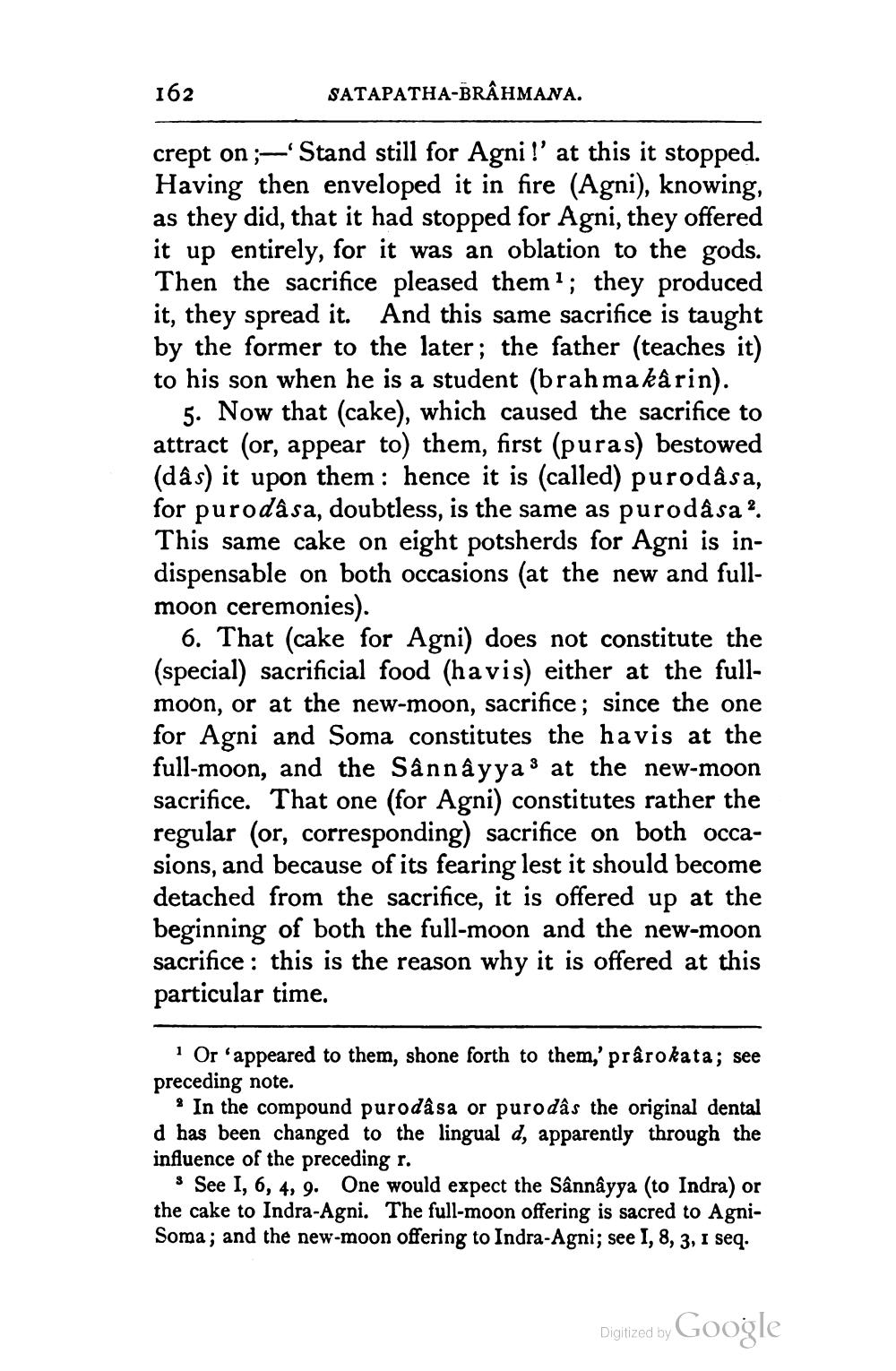________________
162
SATAPATHA-BRAHMANA.
crept on ;-Stand still for Agni!' at this it stopped. Having then enveloped it in fire (Agni), knowing, as they did, that it had stopped for Agni, they offered it up entirely, for it was an oblation to the gods. Then the sacrifice pleased them?; they produced it, they spread it. And this same sacrifice is taught by the former to the later; the father (teaches it) to his son when he is a student (brahma kârin).
5. Now that (cake), which caused the sacrifice to attract (or, appear to) them, first (puras) bestowed (dâ s) it upon them: hence it is (called) purodâsa, for purodâsa, doubtless, is the same as purodâ sa This same cake on eight potsherds for Agni is indispensable on both occasions (at the new and fullmoon ceremonies).
6. That (cake for Agni) does not constitute the (special) sacrificial food (havis) either at the fullmoon, or at the new-moon, sacrifice; since the one for Agni and Soma constitutes the havis at the full-moon, and the Sânnayya 3 at the new-moon sacrifice. That one (for Agni) constitutes rather the regular (or, corresponding) sacrifice on both occasions, and because of its fearing lest it should become detached from the sacrifice, it is offered up at the beginning of both the full-moon and the new-moon sacrifice : this is the reason why it is offered at this particular time.
1 Or appeared to them, shone forth to them,' prârokata; see preceding note.
* In the compound puroda sa or purodâs the original dental d has been changed to the lingual d, apparently through the influence of the preceding r.
* See I, 6, 4, 9. One would expect the Sânnayya (to Indra) or the cake to Indra-Agni. The full-moon offering is sacred to AgniSoma; and the new-moon offering to Indra-Agni; see 1, 8, 3, 1 seq.
Digitized by Google




